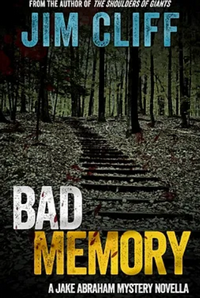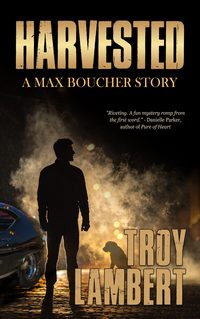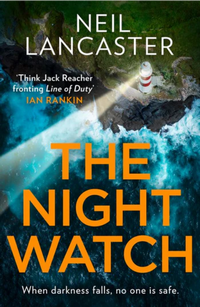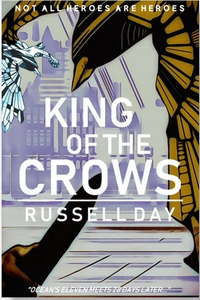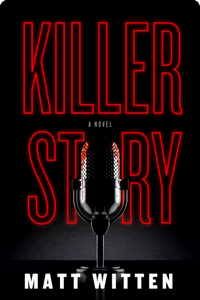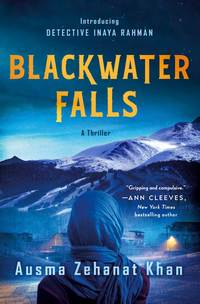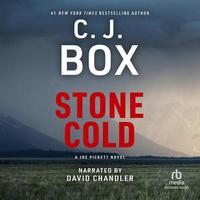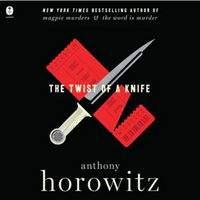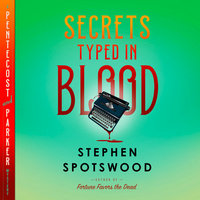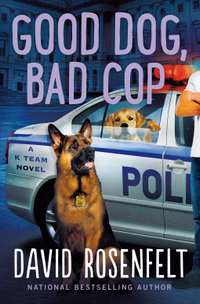 Good Dog, Bad Cop
Good Dog, Bad Cop
DETAILS: Series: The K Team, #4 Publisher: Minotaur Books Publication Date: March 14, 2023 Format: eARC Length: 288 pg. Read Date: February 28-March 2, 2023 9781250828965

What’s Good Dog, Bad Cop About?
Pete Stanton, when he’s not building up a tab for Andy Carpenter at their favorite sports bar, is in charge of the Homicide Division of the Paterson PD. He doesn’t have the budget for more police detectives, but he had a healthy budget for consultants (figure that one out if you can). So he’s hired the K-Team to look into some cold cases for him.
The first one they pick is a doozy. A few years ago, a retired detective and mentor to Corey Douglas was found shot on his boat, a woman’s body was also found there. Some suspicions about a murder-suicide were floated, but nothing stuck. Corey wants to look into it, and Pete approves it with one caveat—they have to investigate the murder of that woman’s husband. He, too, was a Paterson police officer who was murdered. Other than his wife, there’s no obvious connection between the cases, and they weren’t investigated that way.
Corey and Laurie knew going in that Pete would assign them both if they requested one—and honestly, they wanted it that way. All three were aware of the game they were playing, and they all did their part. Now, hopefully, the K-Team and help the PPD close these cases and get some justice for the victims.
Simon
This is really Corey’s book—Laurie’s in it a decent amount, but she doesn’t seem to play as vital a role as usual. Marcus isn’t around much—but is when it counts. Where it comes up short is, as is often the case, Simon’s involvement.
We need to see more of him—Corey even jokes about it at one point, saying Simon’s going to be jealous about something he’s up to without him. That’s all well and good–but it’s not enough.
This is a series about detectives who name their team after a dog. Corey’s a former dog handler. The dog needs to be around more. Do we get some good Simon action? Yes. Are the lines about him and the action involving him good? Absolutely (equating him to Marcus is a great idea). But c’mon, Rosenfelt—give us more Simon.
Poor Sam
Okay, it’s been evident for quite some time in the Andy Carpenter books that while Sam is a good accountant, he enjoys his side gig as a computer researcher for Andy (who isn’t impeded by things like ethics or laws), and he’s more than happy to help out with the K-Team.
But these guys are starting to rely on him too much—sure, they do the legwork. They put a lot of the clues together—but Sam got most of those clues for them. And the number of times that Corey called with new tasks for him was borderline outrageous. They’re working this guy to the bone.
It occurs to me that I said something very similar about the computer tech in the DC Maggie Jamieson series. Is there maybe a union for overworked tech geniuses in Mysteries/Procedurals? Maybe Tilly Bradshaw can organize something.
Corey as a PI
Corey is really coming into his own as a PI (at least as far as fictional PIs go). In the first book or two, he tried to do things the right way—he was very aware that he was no longer a cop and had to act in a certain manner because of it. But he still acted like a police officer, with those kinds of instincts.
Laurie had spent enough time as a PI, was more comfortable in the role, and accepted a greater degree of looseness when it came to protocols. I doubt Marcus ever cared about them in the first place. But Corey was pretty uptight and had to be cajoled into doing certain things.
He seems over that now—he’s willing to color outside the lines, ignore certain rules/laws, and so on. It’s about getting the results and taking care of details and technicalities later.*
* I want to stress that I’m okay with this because we’re talking fictional detectives. The casual attitude toward privacy, phone records, financial transactions, and breaking and entering in a real person would be intolerable—I don’t care what their profession is.
It’s great to see him grow and develop. He’s not the same character that he was when we met him in the Andy Carpenter books–or when this series started. I’m sure that growth with slow and/or stop soon—but for now, I’m liking the journey.
The M Word
As much as he’s growing in his new profession, Corey’s got a long way to go on the personal front. Sure, he’s made great strides since meeting and starting to date Dani. He’s in a long-term committed relationship and isn’t thinking of running for the hills or making some lame excuse to break up.
But he can’t even bring himself to say—or think (including in his narration)—the word “marriage.” He will call it “M” throughout the book—and he’s thinking about it pretty frequently in this book. Sure, it’s immature—he realizes it. But that’s not enough. This is also one of those things that the reader has to suspend disbelief and just roll with. If you do, it’s a fun running joke (it’s easy to do, because if anyone can make a somewhat emotionally stunted man entertaining, it’s the creator of Andy Carpenter).
So, what did I think about Good Dog, Bad Cop?
I know this series (like the Carpenter books) aren’t technically cozies—Marcus by himself keeps them from being considered that way. But I don’t know if there is a pair of series (or one) that I feel so comfortable in. Within a paragraph or two of the protagonist showing up, I’m enjoying the book and feel at home.
Sure, there are better entries and lesser entries—characters moves I like more than others, and so on. But I know as soon as I start one of these books that I’m going to have a good time. That’s what happened here.
I’m enjoying Corey’s transformation into a more typical PI—there are a couple of moments where he felt like the 1990s-era Spenser (just with a dog that wouldn’t run from gunfire). I’m not going to complain about that—ever. I enjoy the dynamics between the team, between the team and the police/other law enforcement entities, between the team and Andy, and so on. I simply enjoyed myself here.
The mysteries on top of that were good, too. I admit that I got suckered into a red herring or two, and things that I was sure of along the way were wrong (I was on the right path, and was only one connection away from being in step with Corey).*
* I’m sure I probably sound defensive there, but that’s only because I am.
I don’t know what else to say—this is a good installment in a reliable series. Fans of Carpenter, the K-Team, or lighter mysteries will gobble this one up. Satisfaction assured.
Disclaimer: I received this eARC from St. Martin’s Press via NetGalley in exchange for this post—thanks to both for this.

This post contains an affiliate link. If you purchase from it, I will get a small commission at no additional cost to you. As always, the opinions expressed are my own.
![]()






